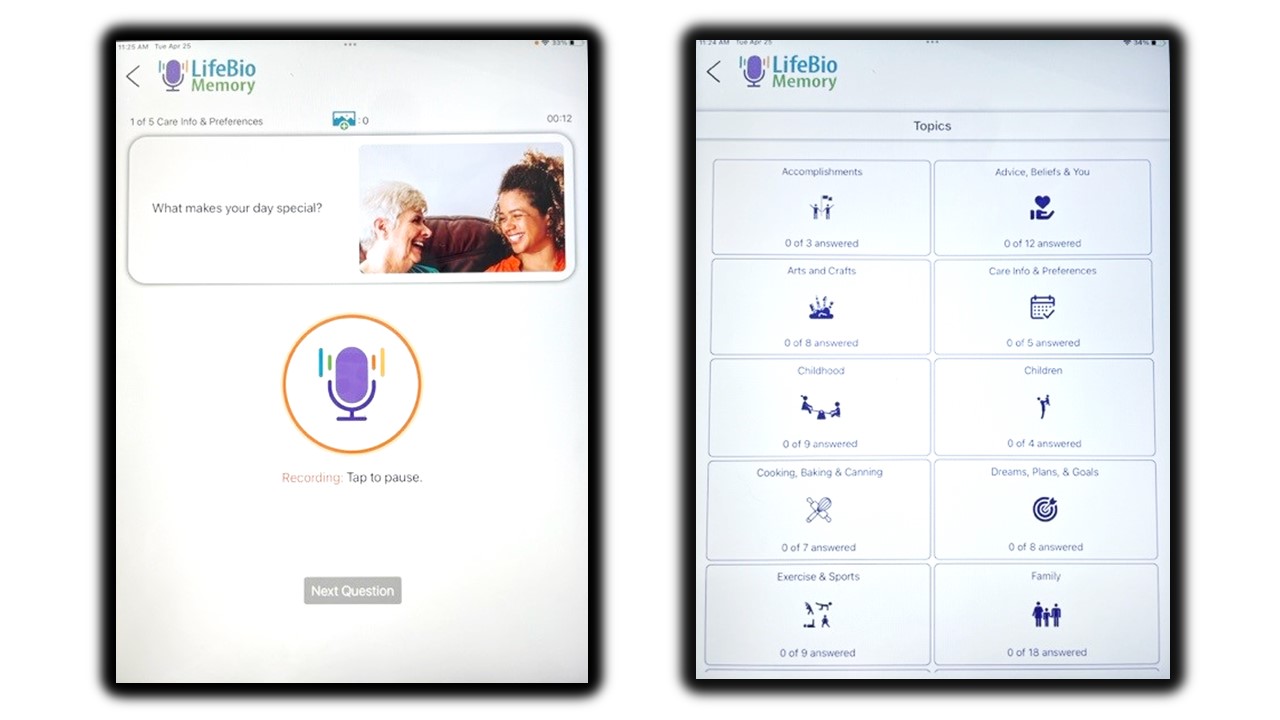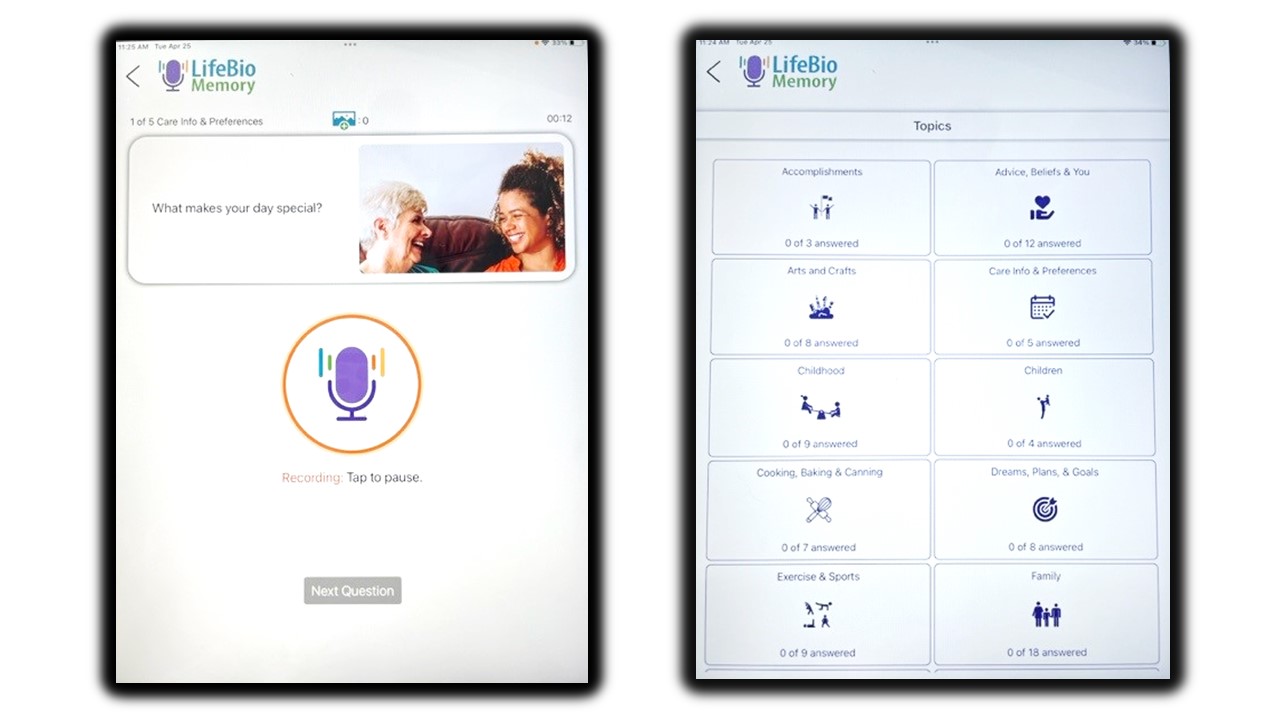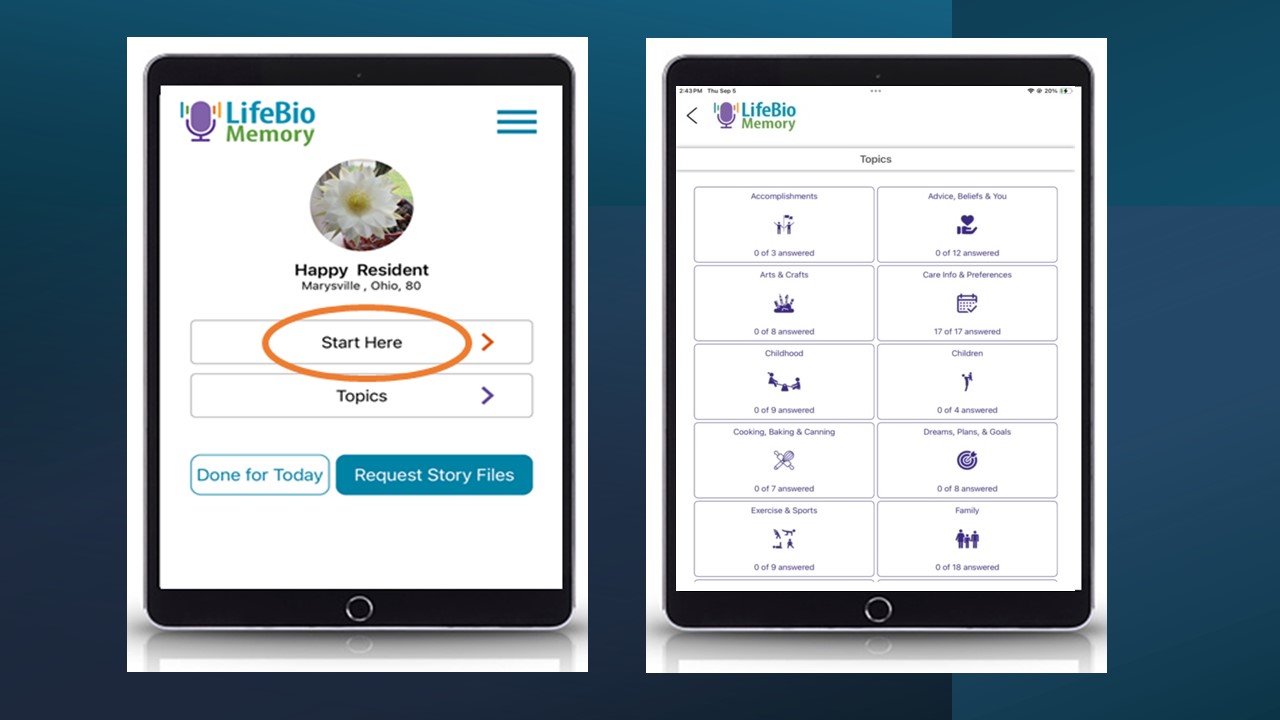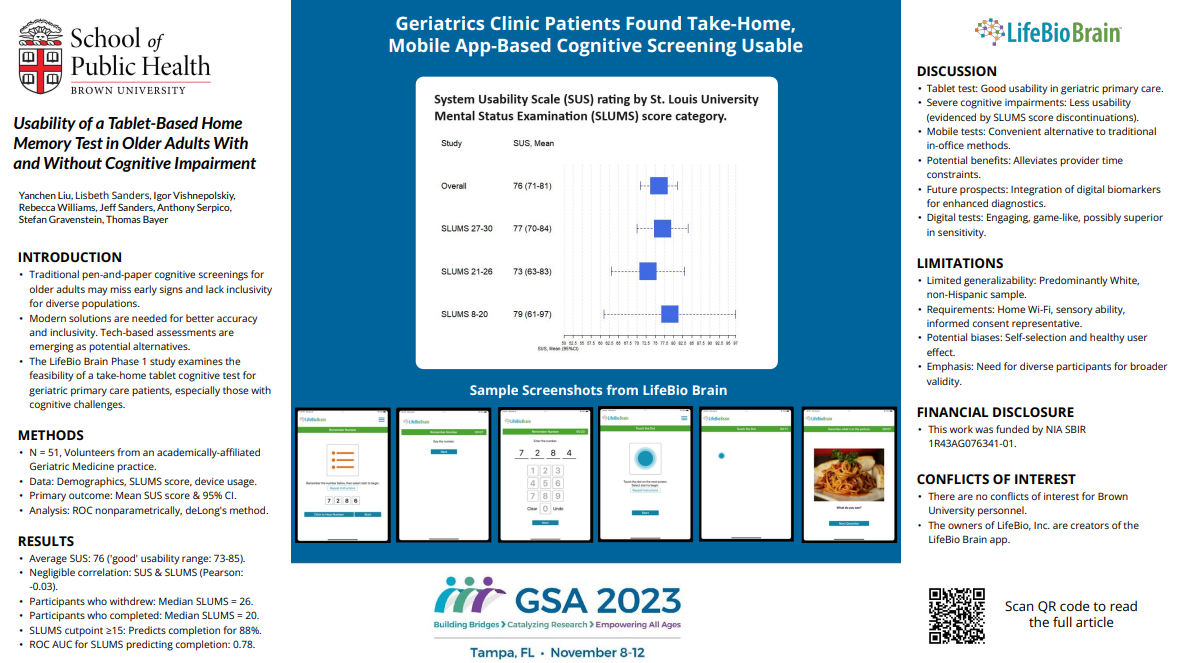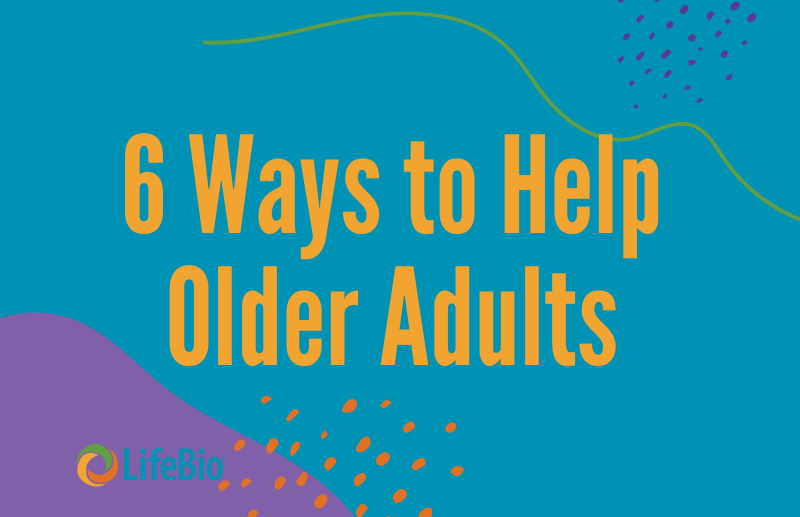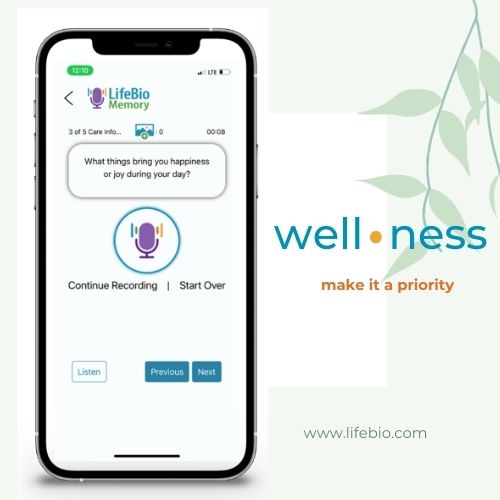LifeBio Memory Research Results - Reduced Depressive Symptoms & Improved Staff's Knowledge of People
LifeBio Memory Research Results - Reduced Depressive Symptoms & Improved Staff's Knowledge of People
READ MORELifeBio Memory Group Classes
When people come together in a LifeBio Memory Group Class (which can be offered in person or even via Zoom), something magical happens. They build new, amazing friendships.
READ MORELifeBio Memory Group Classes are just plain FUN
When people come together to reminisce, something magical happens. They build the most amazing new friendships too.
READ MORE3 Memory Care Programming Tips
Responding to the growing interest and need to enhance or add memory care programs to your offerings, here are three tips to consider.
READ MORESaving Stories and Legacies
Now it is easy to record your own or a loved one's voice to create a legacy.
READ MORE
This innovative app serves as a bridge to better care and deeper connections by capturing and sharing background, memories, and care preferences. By providing personalized insights an by generating Life Story Books, Snapshots, and Action Plans supported by AI, the app significantly reduces depressive symptoms and boosts care staff efficiency.
READ MORE
Usability of an at-home tablet-based cognitive test in older adults with and without cognitive impairment | BMC Digital Health | Full Text
Mobile device-based cognitive screening has the potential to overcome the limitations in diagnostic precision and efficiency that characterize conventional pen and paper cognitive screening. Several mobile device-based cognitive testing platforms have demonstrated usability, but the usability of take-home mobile device-based cognitive screening in typical adult primary care patients requires further investigation.
Methods
This study set out to test the usability of a prototype mobile device-based cognitive screening test in older adult primary care patients across a range of cognitive performance. Participants completed the St. Louis University Mental Status Examination (SLUMS) and then used a study-supplied mobile device application at home for 5 days. The application presented 7 modules lasting approximately 15 min. Participants completed the System Usability Scale (SUS) after using the application.
Results
A total of 51 individuals participated, with a median (IQR) age of 81 (74–85) years. Cognitive impairment (SLUMS score < 27) was present in 30 (59%) of participants. The mean (95% Confidence Interval [CI]) SUS score was 76 (71–81), which indicates good usability. Usability scores were similar across ranges of cognitive impairment. A Lower SLUMS score predicted early withdrawal from the study with an area under the receiver operating characteristic curve (95% CI) of 0.78 (0.58–0.97).
Conclusion
Take-home mobile device-based cognitive testing is a usable strategy for many older adult primary care patients. Depending on patient preferences and abilities, it could be part of a flexible cognitive testing and follow-up strategy that includes mobile device-based testing in healthcare settings and pen-and-paper cognitive testing.
READ MORE
The cold, short days of winter can feel isolating to the older adults around us. Here are 6 ways you can help the older adults in your life combat loneliness.
READ MORELifeBio impacts wellness and helps people create a care plan and a LEGACY
LifeBio's reminiscence therapy touches ALL dimensions of wellness. That's why it cannot be ignored as a tool to use with people living at home, in senior living, assisted living, nursing homes, or with those who have memory challenges. Besides unlocking a fascinating story, it leads to an amazing opportunity for engagement.
Here is how LifeBio impacts wellness:

